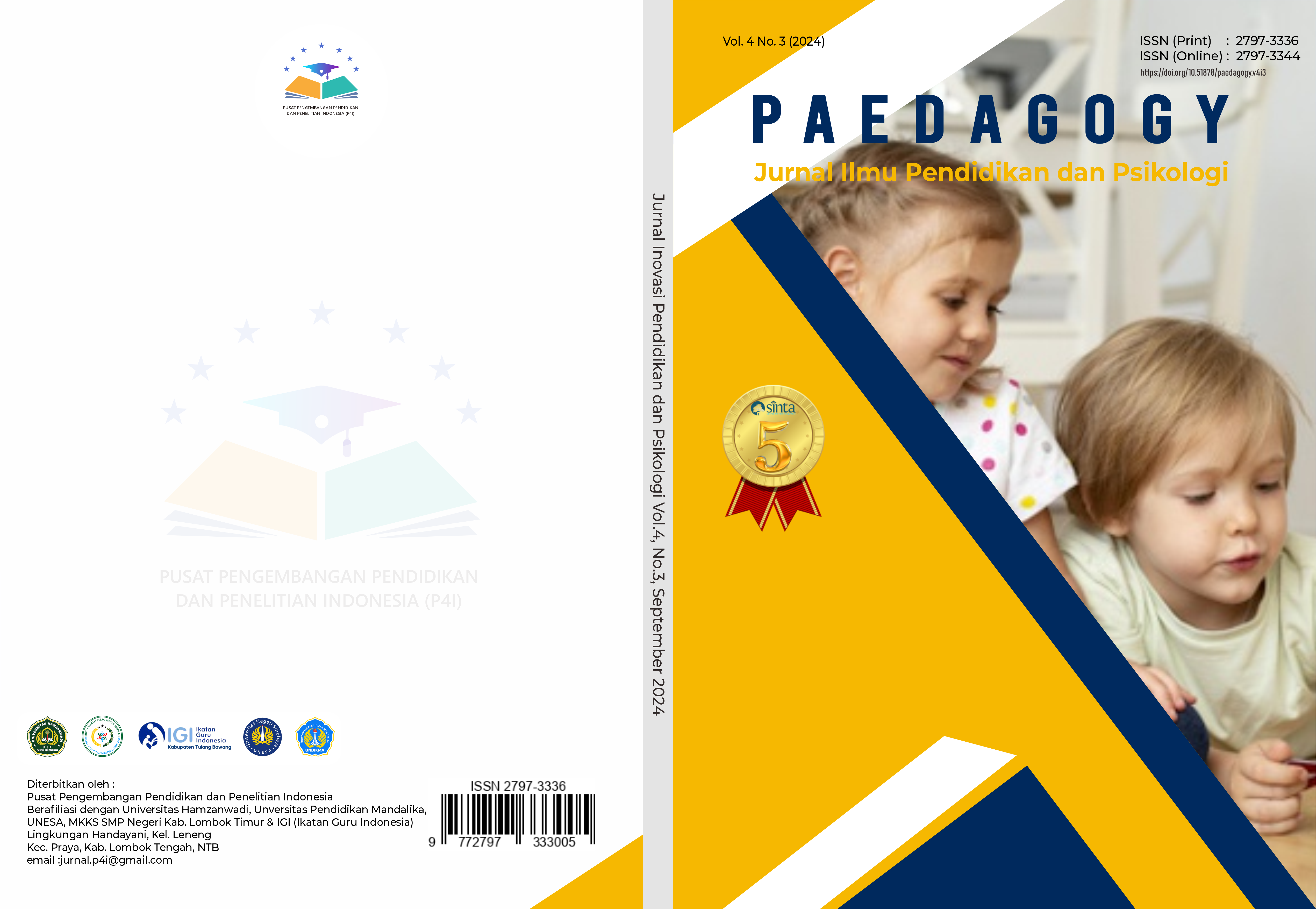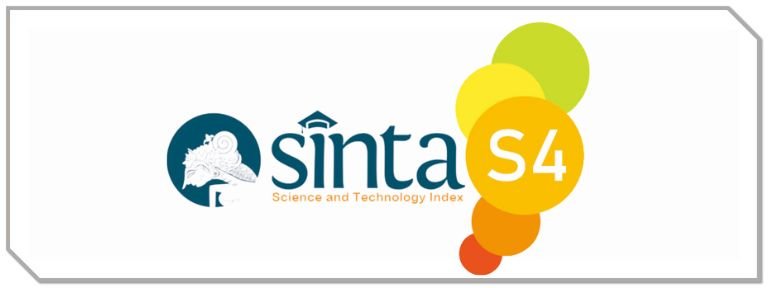ANALYSIS OF THE INFLUENCE OF WORK-LIFE BALANCE AND ORGANIZATIONAL CULTURE ON WORK ENGAGEMENT THROUGH JOB SATISFACTION AS AN INTERVENING VARIABLE AMONG BINTARA MEMBERS OF PUBLIC RELATIONS DIVISION OF CENTRAL JAVA REGIONAL POLICE
DOI:
https://doi.org/10.51878/paedagogy.v4i3.3416Keywords:
work-life balance, organizational culture, work engagement, job satisfactionAbstract
This study aims to assess the influence of work-life balance and organizational culture on work engagement, with job satisfaction serving as a mediating variable, among Bintara personnel in the Public Relations Division of the Central Java Regional Police. A quantitative correlational approach was used, with 39 Bintara respondents participating. The results show that organizational culture has a significant impact on work engagement, while work-life balance does not exhibit a substantial effect. Furthermore, job satisfaction does not mediate the relationship between work-life balance, organizational culture, and work engagement. The validity tests reveal that all variables have AVE values greater than 0.5 and Cronbach's Alpha scores above 0.7, indicating high validity and reliability. These findings highlight the important role of organizational culture in promoting work engagement among police officers and recommend improvements to work-life balance policies within police institutions.
ABSTRAK
Penelitian ini bertujuan untuk mengkaji pengaruh work-life balance dan budaya organisasi terhadap work engagement, dengan kepuasan kerja sebagai variabel mediasi, pada personel Bintara Divisi Humas Polda Jawa Tengah. Pendekatan korelasional kuantitatif digunakan, dengan partisipasi 39 responden Bintara. Hasil penelitian menunjukkan bahwa budaya organisasi memiliki pengaruh yang signifikan terhadap work engagement, sedangkan work-life balance tidak menunjukkan pengaruh yang substansial. Lebih lanjut, kepuasan kerja tidak memediasi hubungan antara work-life balance, budaya organisasi, dan work engagement. Uji validitas menunjukkan bahwa semua variabel memiliki nilai AVE lebih besar dari 0,5 dan skor Cronbach's Alpha di atas 0,7, yang menunjukkan validitas dan reliabilitas yang tinggi. Temuan ini menyoroti peran penting budaya organisasi dalam meningkatkan work engagement di kalangan polisi dan merekomendasikan perbaikan kebijakan work-life balance di dalam institusi kepolisian.
Downloads
References
Abdullah, K., dkk. (2022). Metodologi penelitian kuantitatif. Yayasan Penerbit Muhammad Zaini.
Alshurideh, M. (2023). The factors affect the employee engagement: A systematic review. Journal of Organizational Culture Communications and Conflict, 27(2), 1-13.
Aristiyani, A., dkk. (2023). Pengaruh work life balance, perceived organizational support terhadap keterlekatan kerja melalui kepuasan kerja sebagai variabel intervening pada anggota Instansi X. Jurnal Cahaya Mandalika, 2023, 1188-1199.
Ashkanasy, N. M., Wilderom, C. P. M., & Peterson, M. F. (Eds.). (2011). The handbook of organizational culture and climate. California: SAGE Publications, Inc.
Bakker, A. B., & Leiter, M. P. (Eds.). (2010). Work engagement: A handbook of essential theory and research. Psychology Press.
Belinda, D., Adziani, L., Suhariadi, F., & Sugiarti, R. (2021). Work engagement pada petugas layanan. Philanthropy Journal of Psychology, 5(2), 329-346.
Bon, A. T., & Shire, A. M. (2022). Review of Conservation of Resources Theory in job demands and resources model. International Journal of Global Optimization and Its Application, 1(4), 236-248. https://doi.org/10.56225/ijgoia.v1i4.102
Byrne, Z. S. (2014). Understanding employee engagement: Theory, research, and practice. Routledge.
Chen, L., Li, X., & Xing, L. (2022). From mindfulness to work engagement: The mediating roles of work meaningfulness, emotion regulation, and job competence. Frontiers in Psychology, 13, Article 997638. https://doi.org/10.3389/fpsyg.2022.997638
Christian, M. S., Garza, A. S., & Slaughter, J. E. (2011). Work engagement: A quantitative review and test of its relations with task and contextual performance. Personnel Psychology, 64(1), 89-136. https://doi.org/10.1111/j.1744-6570.2010.01203.x
Clutterbuck, D. (2003). Managing work-life balance: A guide for HR in achieving organisational and individual change. Chartered Institute of Personnel and Development.
Desyantoro, I., & Widhiastuti, H. (2021). Motivasi kerja dan kepuasan kerja terhadap kinerja karyawan PT. XYZ melalui disiplin kerja sebagai variabel intervening. Philanthropy Journal of Psychology, 5(1), 31-46. http://journals.usm.ac.id/index.php/philanthropy
Jaharuddin, N. S., & Zainol, L. N. (2019). The impact of work-life balance on job engagement and turnover intention. The South East Asian Journal of Management, 13(1), Article 7. https://doi.org/10.21002/seam.v13i1.10912
Jeevitha, M., Deepak, K. V., Anjanadevi, S. C., & Abhinav. (2024). Understanding work-life balance and its impact on job satisfaction. Journal of Informatics Education and Research, 4(2).
Khusanova, R., Kang, S.-W., & Choi, S. B. (2021). Work engagement among public employees: Antecedents and consequences. Frontiers in Psychology, 12, Article 684495. https://doi.org/10.3389/fpsyg.2021.684495
Huang, S. Y. B., Huang, C.-H., & Chang, T.-W. (2022). A new concept of work engagement theory in cognitive engagement, emotional engagement, and physical engagement. Frontiers in Psychology, 12, Article 663440. https://doi.org/10.3389/fpsyg.2021.663440
Humairoh, & Wardoyo. (2017). Analisis Pengaruh Budaya Organisasi terhadap Employee Engagement dengan Kepuasan Kerja sebagai Variabel Intervening (Studi Kasus: Perusahaan Jasa Layanan Pelabuhan). Ultima Management, 9(1), Universitas Muhammadiyah Tangerang.
Li, W., Jahan, Y., Kawai, M., Fukushima, Y., Kazawa, K., & Moriyama, M. (2022). Factors affecting employees work engagement in small and medium-sized enterprises. International Journal of Environmental Research and Public Health, 19(17), 10702. https://doi.org/10.3390/ijerph191710702
Manurung, A. H., Kartono, R., Tjahjana, D., Tjiptadi, D. D., & Saputra, N. (2021). Manajemen: Teori dan Perkembangannya. PT Adler Manurung Press.
Muhson, A. (2022). Analisis Statistik dengan SmartPLS: Path Analysis, Confirmatory Factor Analysis, & Structural Equation Modeling. Universitas Negeri Yogyakarta.
Munif, A., Nurhayati, T., & Widhiastuti, H. (n.d.). Analisa pengaruh pengembangan karir dan motivasi ekstrinsik, motivasi intrinsik terhadap kinerja SDM dengan kepuasan kerja sebagai variabel intervening. Jurnal Manajemen, Universitas Semarang, Indonesia.
Nafis, R. Y., Safitri, F. N., & Qatrunnada, R. Z. (2023). Pengaruh motivasi kerja dan kepuasan kerja terhadap keterikatan kerja pada karyawan PT. X Pasuruan, Jawa Timur. Jurnal Ilmiah Psikologi Candrajiwa, 8(1), 44-53. https://doi.org/10.20961/jip.v8i1.70506
Pakpahan, B. A. S. (2022). Budaya organisasi, manajemen konflik, keadilan prosedural dan kepuasan pada pekerjaan. Jakarta: Publica Indonesia Utama.
Pawirosumarto, S., Sarjana, P. K., & Gunawan, R. (2017). The effect of work environment, leadership style, and organizational culture towards job satisfaction and its implication towards employee performance in Parador Hotels and Resorts, Indonesia. International Journal of Law and Management, 59(6), 1337-1358. https://doi.org/10.1108/IJLMA-10-2016-0085
Pitasari, N. A. A., & Perdhana, M. S. (2018). Kepuasan kerja karyawan: Studi literatur. Diponegoro Journal of Management, 7(4), 1-11.
Poelmans, S. A. Y., & Caligiuri, P. (Eds.). (2008). Work-life balance: A psychological perspective. Psychology Press.
Pratami, R. P. (2021). Pengaruh kepuasan kerja dan stres kerja terhadap work engagement karyawan di masa pandemi COVID-19. Nusantara: Jurnal Ilmu Pengetahuan Sosial, 8(6), 1735-1743. https://doi.org/10.12345/nusantara.v8i6.2021
Triambodo, D. B. A., Widhiastuti, H., Sugiarti, R., Virgontia, M. I. W., & Ma'rifah. (2023). Analisis pengaruh etos kerja dan budaya organisasi terhadap loyalitas personel dengan kepuasan kerja sebagai variabel intervening (studi kasus pada anggota Polres Kudus). Attractive: Innovative Education Journal, 5(2), Juli, Universitas Semarang, Indonesia, Universitas Muhammadiyah Surakarta, Indonesia.
Puspitasari, R. D., & Budiani, M. S. (2021). Hubungan antara budaya organisasi dengan work engagement pada karyawan PT. Mitra Megah Bangunan Abadi. Jurnal Psikologi, Fakultas Ilmu Pendidikan, Universitas Negeri Surabaya, 1(1), 1-12.
Putra, A. F., Widhiastuti, H., & Sugiarti, L. R. (2023). Pengaruh persepsi lingkungan kerja dan motivasi kerja terhadap kinerja karyawan dengan kepuasan kerja sebagai variabel intervening. Jurnal Pendidikan dan Konseling, 5(1), Universitas Pahlawan Tuanku Tambusai.
Putri, I. R., & Yusuf, N. F. (2022). Pengaruh budaya organisasi dalam menciptakan perkembangan organisasi. Jurnal Administrasi Publik, 18(1), 143-154. https://doi.org/10.52316/jap.v18i1.82
Qodrizana, D. L., & Al Musadieq, M. (2018). Pengaruh work-life balance terhadap kepuasan kerja (Studi pada karyawan perempuan Yayasan Insan Permata Tunggulwulung Kota Malang). Jurnal Administrasi Bisnis (JAB), 60(1), 1-12. https://administrasibisnis.studentjournal.ub.ac.id
Rahmayati, T. E., Sariyanto, & Adriansyah, T. M. (2022). Pengaruh work-life balance terhadap work engagement pada dosen wanita dalam menghadapi dunia pendidikan di era digital. Journal of Education, Humaniora and Social Sciences (JEHSS), 5(2), 1448-1456. https://doi.org/10.34007/jehss.v5i2.1486
Ridho, A. (2023). Keterikatan kerja: Sebuah reviu konseptual. Buletin Psikologi, 31(1), 56-79. https://doi.org/10.22146/buletinpsikologi.55589
Rizanatulmahyani, L., Widhiastuti, H., & Nusandari, A. (n.d.). Job satisfaction, transformational leadership on performance through organizational commitment in Islamic school employees. Reswara Journal of Psychology. Program Studi Magister Psikologi, Universitas Semarang, Indonesia.
Safariningsih, R. T. H., Rizan, M., Handaru, A. W., Hamidah, H., Suparno, S., & Yohana, C. (2022). Work engagement: Teori dan praktik. Eureka Media Aksara.
Sayekti, L. N., & Suhartini, S. (2018). Work-life balance dan work engagement: Dampaknya terhadap kepuasan kerja dan kinerja karyawan. Jurnal Administrasi Bisnis (JAB), 60(1), 132-145. https://doi.org/10.12345/jab.v60i1.132
Schaufeli, W. B., & Bakker, A. B. (2004). Job demands, job resources, and their relationship with burnout and engagement: A multi-sample study. Journal of Organizational Behavior, 25(3), 293-315. https://doi.org/10.1002/job.248
Downloads
Published
How to Cite
Issue
Section
License
Copyright (c) 2024 PAEDAGOGY : Jurnal Ilmu Pendidikan dan Psikologi

This work is licensed under a Creative Commons Attribution-NonCommercial-ShareAlike 4.0 International License.
















